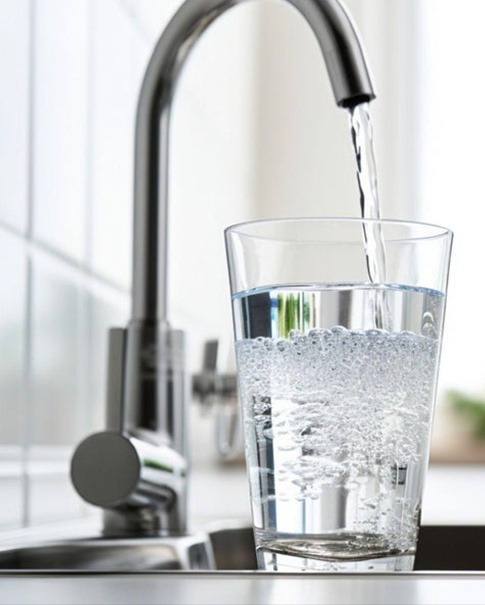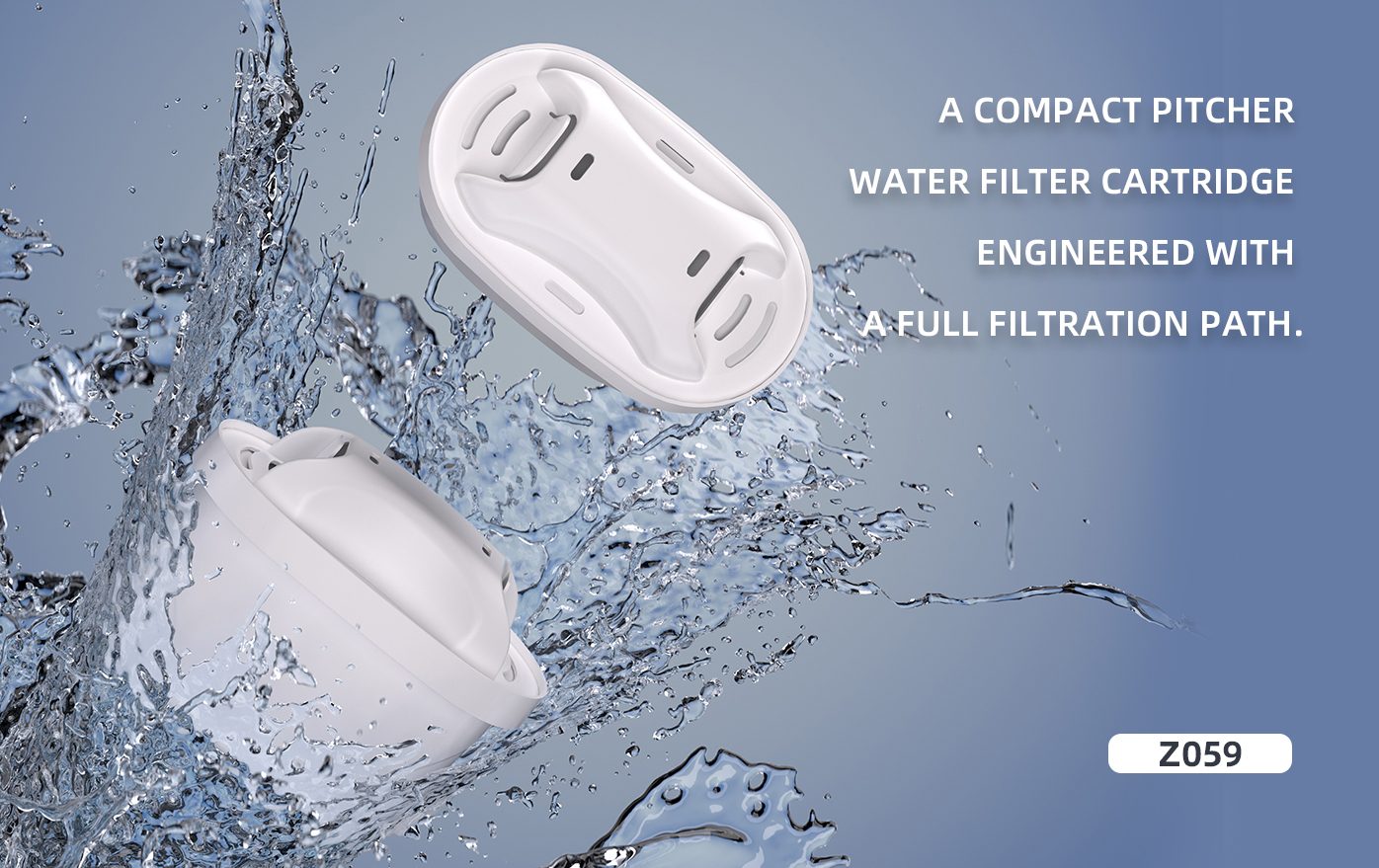
The Rise of Water Pitcher Filtration
Over the past decade, water pitcher filters have quietly become a must-have in many households. They sit in refrigerators, on office desks, or beside coffee stations—simple, low-maintenance, and surprisingly effective for everyday hydration. For people who want better-tasting water without installing plumbing systems, pitcher water filter cartridges strike an ideal balance: easy to use, affordable, and instantly noticeable in taste and clarity.
What’s Inside a Pitcher Filter Cartridge?
Though the exterior may seem simple, the inside of a pitcher filter is surprisingly sophisticated. Take the Brita-compatible Pureza Z059 pitcher water filter cartridge as an example—this compact PP cartridge houses a carefully crafted combination of filtration materials. A fine needle-punched cotton layer effectively traps sediment and rust, while coconut-shell activated carbon absorbs residual chlorine and unwanted odors. Additionally, resin granules works to soften the water, reducing minerals that contribute to hardness.
Together, these layers create a step-by-step filtration path designed for everyday tap water.

What Can Pitcher Replacement Water Filters Remove?
While pitcher water filter cartridges are not designed to replace full home filtration systems, they are highly effective for improving taste, odor, and everyday impurities.
A typical multi-layer cartridge can help with:
Sediment & rust — captured by the fine cotton pre-filter
Chlorine & odors — absorbed by coconut-shell activated carbon
Minerals that cause hardness — reduced by resin layer
For households using municipal water, these improvements are usually enough to make daily drinking noticeably fresher and cleaner.
How Pitcher Water Filters Work?
Pitcher water filter cartridges work through gravity-flow filtration. Water slowly passes through several layers inside the cartridge, each performing a specific function.
A durable PP shell keeps the internal media stable. Needle-punched cotton catches larger particles first. As water flows deeper, the natural porous structure of coconut-shell carbon traps chlorine and chemical residues. Finally, the resin softens the water by exchanging hardness minerals like calcium and magnesium with more desirable ions.
This step-by-step process results in a smoother, cleaner water profile—all without electricity or pressure pumps.
Do Pitcher Replacement Water Filters Have Limitations?
Some users question whether pitcher water filters are “strong enough,” especially compared with RO systems or multi-stage home filtration. Critics argue that the flow rate can slow down as the filter ages, or that results vary depending on water quality.
These concerns are valid—but they mostly highlight the importance of filter design and replacement frequency. A well-structured cartridge with high-quality materials tends to maintain stable flow (around 300 ml/min in many modern designs) and consistent performance as long as it’s replaced on schedule.

The Advantages of Using a Pitcher Water Filter Cartridge
Easy to use — no installation, no tools
Affordable — low investment for noticeable improvements
Portable — ideal for apartments, offices, and dorms
Sustainable — reduces reliance on bottled water
Modern cartridges, including upgraded multi-layer designs like the Z059 pitcher water filter cartridge, strike a balance between fast flow, efficient chlorine reduction, and better taste, making them a practical choice for everyday hydration.
Conclusion
Water pitcher filter cartridges aren’t meant to solve every water-quality challenge—but they excel at what most people need most: better-tasting, cleaner everyday water with minimal effort. For homes, offices, small apartments, or anyone seeking a simple hydration upgrade, a well-designed pitcher water filter is one of the most practical tools available.